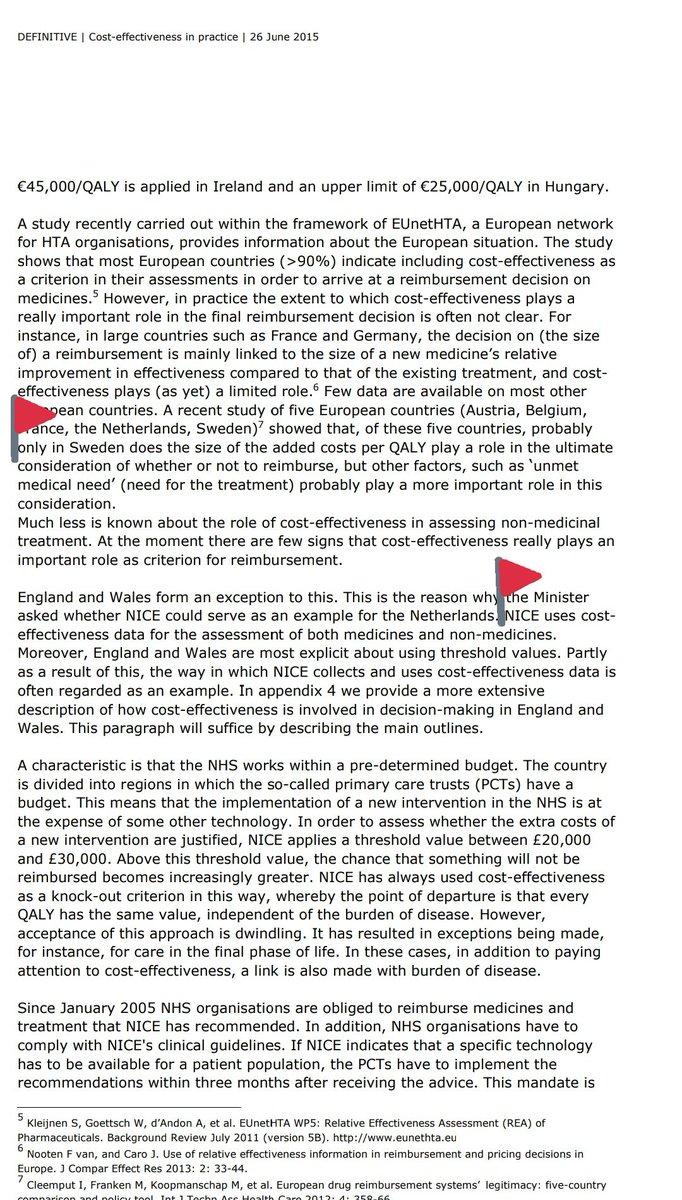english.zorginstituutnederland.nl/binaries/zinl-…

Healthcare is very expensive. In most countries the government needs to make difficult choices which come down to rationing of care.
Rationing is most visible with reimbursement of medicines. Inevitably, expensive drugs with few benefits are kept out.
But the threesome (S, GB, NL) also apply CUA to actual medical interventions. Do we treat this patient or not?
The basic framework is a threshold cost per QALY (quality adjusted life year).
In Holland, the threshold is 80,000 euros per QALY.
If you are 84, wheelchair bound, deaf and can't go outside, and the intervention will afford you a year of additional life, the max spend is 40,000 euros.
But this is is usually left to the patient ("don't intubate me please") or to the veil of hypocrisy ("shouldn't we just give your father some peace?").
But the main issue is that it puts a monetary value on "priceless" life.
This has dramatic consequences for pandemic thinking.
The average government thinks: 100,000 dead. Not on my watch! Let's act!
But pandemics are not choices on saving one life. They affect societies.
This is helped by the fact that care homes do not have much access to hospitals (CUA!). The Covid deaths are largely off-camera.
It is patently irrational when a pandemic threatens the entire economy and millions of healthy lives.
And becoming more irrational by the day as containment of the outbreak is proven to be sort of easy everywhere.
- enable CUA in a country
- create/maintain a lot of trust from the public when CUA fails so catastrophically.
Even outsiders think: "shining-city-on-a-hill countries, maybe they have a point".
And so rescue must come from outside. When the world contains the virus, maintaining it in your population is imposing sanctions on yourself.
This change is inevitable, we only hope it comes quickly before damage escalates.
#BreekDeGolf #HerdImmunity @tomaspueyo @devisridhar @Ammer_B @XanderKoolman @bosmana @NaomiOhReally @profhelenward @TarekFatah @DFisman @yaneerbaryam


